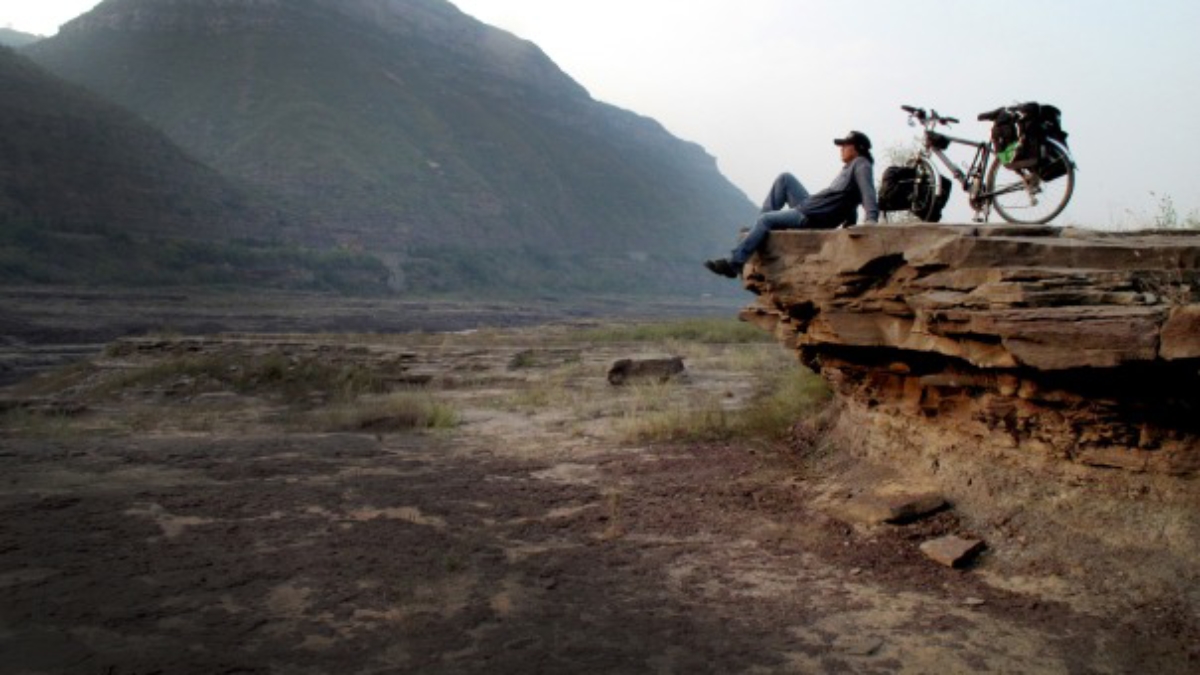When the image of the epic protest of a “nail house” resident against the excavation for a local construction in Chongqing prevailed in Western media in 2007, what caught filmmaker Stephen Maing’s attention was the source of information: independent bloggers in China. It was the pre-Olympics era, when Beijing repeatedly promised (conditional) press freedom, when clusters of blogs of dissent began to take shape, producing and disseminating uncensored criticism, including a petition titled “One World, One Dream and Universal Human Rights,” and when the Great Fire Wall was still relatively a spectral presence, nervously anticipating the many challenges of 2008 to come. Maing said in an interview that the two bloggers featured in the film, Zola and Tiger Temple, were concerned that the film would be dated if it was not finished and released soon enough, and it was a valid concern. Within five years of the film’s conception to finish, there have been spectacles, scandals, reform, regression, patriotism, cynicism, protests, petitions, shut-downs, power struggles–both politically and socially, online and offline. But the film turns out to be more relevant and timely than ever, thanks to its accurate grip on the emergence of what today has become: an explosive but precarious arena of digital contention and its intimate and caring presenting of how two individuals are situated in this larger context.
The film opens with the hyperbolic propaganda of the 60th anniversary of the founding of The People’s Republic of China in 2009 on TV. In the following shot, the 27-year-old Zola (ZHOU Shuguang) is seen standing in the rice pad of his hometown in Hunan Province, playing tablet games. A vegetable vendor as well as a self-taught computer geek/blogging reporter, he lives in his garage that looks like a techy imaginarium. The film pieces together Zola’s covering of what in hindsight are regarded the landmark local “mass incidents” in 2007 and 2008 as indications that the local government and media control were losing ground to the public’s rising awareness of the rights inherent in citizenship and rapidly renewing of Internet technologies. The 2008 Weng’an Riot was a typical case: the media cover-up of a rape and murder allegedly involving the local official’s relative became extremely hard because of the protest from locals and a huge flux of bloggers, and the official report that accredited a nonsensical account of a suspect further enraged the internet, where the key term, “push-up,” went viral. Zola poses as a tourist for snapshots in front of the coffin of the murdered girl, video recorded himself doing six push-ups on the crime scene (doubling the number of push-ups suspect said he did before the girl “killed herself”), and publishes the video clarifying that the impudence was a tactic, yet not totally disclaiming the intention to become famous.
The parallel figure is Tiger Temple (ZHANG Shihe), a Beijing-based former writer-turned-businessman in his 50s, whose formative years were blighted by his father, a faithful revolutionary’s persecution during the Cultural Revolution. Tiger Temple founded the power of grassroot journalism in the then emerging blogosphere by covering a murder on his way home from an impressionist exhibition. His blog report accidentally earned him the name of “the first citizen reporter.” In contrast to the “playful warrior of the 80s generation” as he nicknames Zola, Tiger Temple appears to be more of a traditional intellectual for his almost didactic manner of talking. But empowered and informed by blogging, he is significantly astute with the old and new ways of persuasion, bringing in a historical dimension to the pursuit that seems to be the invention of a younger generation. He follows up on the issues he has covered, regularly setting out on bicycle trips to rural villages and city peripheries to investigate pollution in disenfranchised communities.
Quietly twining the trajectories of the two bloggers, HIGH TECH LOW LIFE teases out the different and the common urges of these people from disparate backgrounds to participate in public affairs, tactically but also unswervingly negotiating with their circumstances, and the oppressive forces they have to encounter. The film creates an impression that Tiger Temple and Zola finally met in person in Guangzhou at the conference for independent bloggers in 2009. But in fact they knew each other before, and it was Zola who put Maing and Tiger Temple in touch. The first time they met in Beijing, Maing turned off his camera and sat in their conversation over some sensitive topics.
The demographics of this generation of Chinese independent bloggers and the gravity of their situations are certainly more than what finally got into this film, and honestly more than what a single film can encompass: the names of many outspoken public intellectuals and social activists (who were in the original plan of making it a multi-subject panorama, see Question 6) appear in the end credits, each of them can tell stories of detainment, police interview or threats of unemployment, which Zola and Tiger Temple have experienced in the film, and it got them thousands of texts and reposts of support from netizens. But it is worthwhile for the film to open only a micro window here – with much respect and caring – on the two characters, who are, with no academic credential or political leverage, spontaneously responding to the social problems with their everyday shrewdness, commitment and executive capability, activated and catalyzed by the energy of social media. Equally significant is to see that Zola, who expresses his loneliness in the voice-over, and Tiger Temple, who deliberately estranges his family for safety reasons, find themselves not really alone on this journey, be it for the fact that Rat 2 comes to visit to Zola, or Tiger Temple’s buddies try to snatch him back from the police, or the relief generated by the film’s structure that postpones showing their close friendship towards the end. It is a point that previous documentaries on activism in China rarely try to hit – that the previously social molecules isolated in social debilitation began to come together for a common belief, and how hard it could be in this polyphonic, premature and heavily censored public sphere.
Zola is certainly not unfamiliar with the difficulty of building credibility when the state-enforced monopoly of information and the deeply rooted binarism are constantly reinforcing each other, especially with his self-branding of showmanship. His playful approach has often caused backlash. “I hate your personality. But someone like you is still of value,” says one comment under his post. At some point Zola as a documenter is facing what a documentarist usually handles: the degree of truthfulness in his account and the means/manner of conveying it. The film, in this respect, struck me as an interesting case for its exquisite positioning in relation to its subjects. A documentary of documenters – even the scriptedness of Zola and Tiger Temple’s narration is no more alienating than suitable for their self-conscious performing persona inherent in their roles as reporters. What’s better, these two camera-carrying bloggers are increasingly aware of the kind of strength they are holding in their hands, and are highly conscious of how their practice might affect or benefit their own subjects. The visceral first hand materials recorded by Zola and Tiger Temple’s small digital cameras and Maing’s footage of them filming at the scene validate and complement each other – think of Zola’s remark at Maing’s camera on how he is surprised by one Beijinger’s singing in public an openly anti-government song, and the tear trickling down a villager’s face at Tiger Temple’s presentation on how industrial pollution ruined his hometown – the mysterious boundary of freedom in China confounds Zola as well as the audience, and the outcome of the environmental campaign is examined for Tiger Temple through Maing’s lens. When selection and mediation of information is inevitability in any sort of documenting, an exchange of multi-perspectival accounts can be a viable antidote. This is the value of an open forum, be it in form of a film or a blog.
 Lesley Yiping Qin holds an M.A. degree in Cinema Studies at NYU. She has worked in film festivals and organizations like AAIFF’12, Tribeca Film Fesitval 2012, MoMA Film Department and The Robert Flaherty International Documentary Seminar. She is also a freelance translator and editor at cinephilia.net, one of the most influential Chinese-language grassroot film blogs for film critics, journalists, scholars and fans.
Lesley Yiping Qin holds an M.A. degree in Cinema Studies at NYU. She has worked in film festivals and organizations like AAIFF’12, Tribeca Film Fesitval 2012, MoMA Film Department and The Robert Flaherty International Documentary Seminar. She is also a freelance translator and editor at cinephilia.net, one of the most influential Chinese-language grassroot film blogs for film critics, journalists, scholars and fans.
Check out CineVue’s interview with Director Stephen Maing, here.

